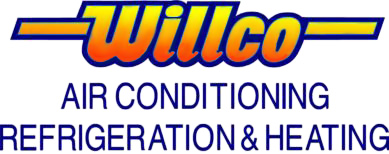Buying your first home is thrilling. You’re probably trying to keep track of numerous details about making the right choice. We believe that understanding your future HVAC system is essential. The property’s HVAC system represents a significant investment and potential source of long-term costs, which is why due diligence should be a top priority for first-time homebuyers.
In this guide, we’ll outline seven tips for discovering all there is to know about a home’s heating and cooling setup. And if you want a deeper opinion from the pros, don’t hesitate to contact Willco Air Conditioning, Refrigeration & Heating Inc.. Our experienced team can share details about your options with industry insights that are second to none.
1. What Type of HVAC System Is It?
Start by determining what type of HVAC system the home features. Furnaces generally last longer than air conditioners, and newer types of HVAC systems like heat pumps feature average life spans that are impressively long. Getting the details on the make and specific model ensures you have a much better sense of how much routine maintenance it might need.
2. How Old Is the Current HVAC System?
It also helps to learn how old the HVAC system is when you’re looking at a potential new home. On average, HVAC systems should survive for around 10-12 years. Learning its approximate installation date helps you prepare for any needed servicing or when it might eventually stop working. Older systems are at a higher risk of problems, so budgeting for a replacement unit might be needed faster than expected.
3. Does the System Have a Warranty?
Check if the HVAC system is still under warranty. If it is, this can help with maintenance costs. HVAC warranties often cover parts and labor, but specifics will vary. Make sure you go over any terms you don’t recognize to make sure you fully understand your coverage and potential out-of-pocket costs.
4. Has the System Ever Been Professionally Serviced or Maintained?
Take a close look at the maintenance history of the HVAC system, if such information is available. This service history can demonstrate if the repair needs are high or how much upkeep was provided. You should at least try to track down a history of key tasks such as changing the air filter, which can indicate it received regularly scheduled tune-ups.
5. Are You Aware of the System’s Energy Efficiency Ratings?
Selecting a system with great energy efficiency isn’t just smart; it leads to smaller utility bills and a smaller environmental impact. Check out the seasonal energy efficiency ratio (SEER) ratings for air conditioning as well as the annual fuel utilization efficiency (AFUE) for furnaces. High SEER ratings mean more efficient cooling throughout the season, while strong AFUE ratings indicate that the fuel is efficiently converted into useable heat.
6. Have You Noticed Signs of Problems After Completing an Informal Inspection?
Even without the know-how of an HVAC technician, you should still inspect the HVAC system yourself. Look for signs of problems that haven’t been mentioned by the seller. This can mean bizarre noises, unequal airflow and attempts to cover up any serious damage.
7. Have You Asked Your Local HVAC Professional?
If you’re unsure about the overall state of the HVAC system, it’s wise to get an assessment and recommendation from certified HVAC technicians. They are skilled at identifying things you may not know about, including leaks in the refrigerant, damage to the wiring or damaged ductwork.
A Call with Willco Air Conditioning, Refrigeration & Heating Inc. Simplifies Your Home-Buying Journey
Choosing your first home ought to be exciting, and Willco Air Conditioning, Refrigeration & Heating Inc. can ensure it stays that way. Get in touch with us at 862-345-6896. We can talk about how our HVAC services give you peace of mind, giving you what you need to dive into home-ownership with confidence.



